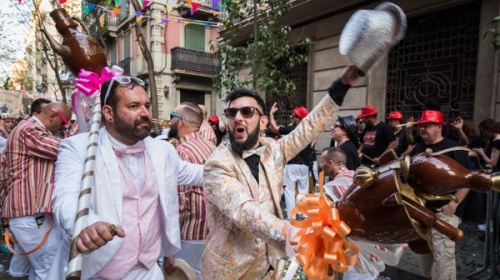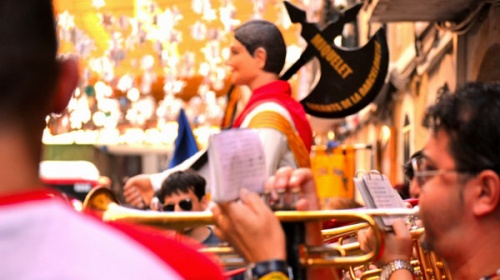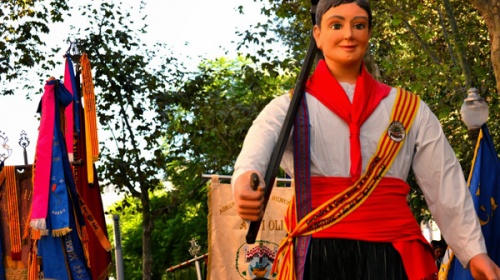Cors muts
Activity dates
Dates de celebració
Around Whitsunday or Pentecost.
Feast Day: Monday, 50 days after Easter
The Cors Muts (Silent Choirs) festival is a popular celebration with very strong roots in some Barcelona neighbourhoods that takes place on Whit Monday and the weekend before. These humorous choirs, from Barceloneta and Raval, are basically formed by men who organise cercaviles – musical parades – and other activities in their respective neighbourhoods.
The Saturday before Whitsunday, or Pentecost, the choirs organise a get-together of their members and go away for a festive weekend of good food and drink. Before they set off, they parade through their neighbourhood dressed in typical clothes and accompanied by their families and neighbours.
When they come back on the Monday evening, they organise a big cercavila and stay out celebrating well into the night.
Reason
The Cors Muts festival takes place around Whitsunday, or Pentecost, when Christians celebrate the descent of the Holy Ghost to the disciples on the Jewish Pentecost in 30 AD. This revelation imbued the disciples with great knowledge and an understanding of many languages, so they could go forth and preach around the world. Whitsunday therefore celebrates the birth of the Christian Church and spreading the Word of God as well.
Origins
Over the years two factors have combined to shape this festival of the "mute" choirs, so called because now they don't sing. They were inspired by the musician, poet and politician Josep Anselm Clavé in the middle of the 19th century. He wanted to create an entire cultural movement to give workers something to do when they finished work, instead of spending hours in the pub.












